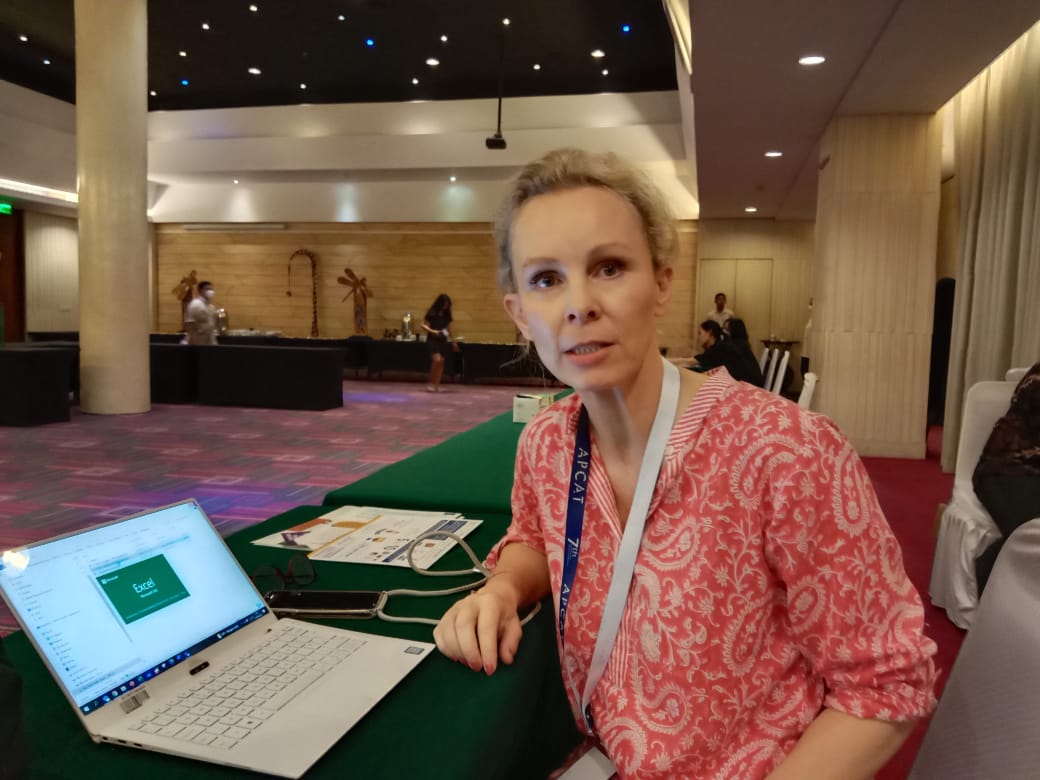Don’t fall prey to tobacco Industries’ ‘scare tactics’
WHO wants stronger law, code of conducts for MPs

An expert of the World Health Organisation (WHO) has urged the government not to fall prey to the tobacco industries’ ‘scare tactics’ when it comes to increasing taxes and said the UN agency would help the government to plug the loopholes of the tobacco control law.
Dr Kerstin Schotte, medical officer of WHO’s No Tobacco Unit in Geneva, also suggested having a ‘code of conduct’ for the lawmakers if they interact with the tobacco industry.
That interaction has to be ‘transparent’ to the public, she said while giving an interview to Bangladesh Post in Bali, Indonesia on Friday on the sidelines of the 7th Asia-Pacific Summit of Mayors.
Bangladesh is a party of the WHO’s Framework Convention on Tobacco Control (FCTC) which means that the government would take measures to make smoke-free environments and ban tobacco sponsorship, advertisements and promotions among many measures to control the use of the product which is linked with the rising trend of non-communicable diseases such as heart problems, diabetes and cancer.
The 7th Asia Pacific Summit of Mayors, recognise that Asia Pacific Cities Alliance for Health and Development (APCAT) is a vital platform to share experiences, shape local actions, and secure greater leadership as well as look for synergistic actions between specific health and development programmes.
Dr Kerstin said the summit titled “together we bring health solutions” is inspiring to see how the mayors of many cities try to find local solutions for local problems and how they are convinced that they can influence policies by taking measures at a sub-national level.
In a declaration, the mayors agreed to adopt ‘One Health’ approaches and processes to ensure that “a healthy city is a resilient city”.
“In tobacco control one health approach is important,” Dr Kerstin said. “Because you have to have a whole government approach in order to tackle the issue because you will need the ministry of finance to approve high levels of tobacco taxation. You will also need the ministry of education and the ministry of foreign affairs, apart from the ministry of health to move forward. We see the countries that have reduced tobacco use effectively, there has been a whole government stance. In our department (in WHO) we not only have medical officers, but also economists who work with the ministry of finance to raise taxes on tobacco and other issues.”
She said Bangladesh has already done a lot to comply with the FCTC treaty. All countries can do more, including Bangladesh. For example, the topic protecting the people from tobacco smoke. The law could be strengthened.
“In health warning level, Bangladesh did a lot. There is a large pictorial warning level. If the country wants to do more, the next level is standardised packaging which is known as plain packaging. The first country that did it was Australia.”
As tobacco industries always argue against raising taxes so that the government does not lose revenue, she termed this as one of the “scare tactics” of the tobacco industry.
“This is the mechanism of the tobacco industry to scare governments to try to influence the governments and continue selling their products cheaply.”
“On the contrary raising tobacco taxes is a win-win situation. You increase the revenue and use that for health objectives. You can use it for mass media campaigns to inform the public about the harmful impacts of tobacco use.”
She said the tobacco industry is “very powerful” also in Bangladesh since the government owns some shares.
There is also conflict of interest since some parliamentarians like many other countries lobby for them so that some policies that the industries go against them cannot be put in place.
“We recommend the government to be really strong against the tobacco industries and put measures so that lobbying by tobacco industries is no longer possible. One of the very useful tools is to have a ‘code of conduct’ for the MPs if they interact with the tobacco industry,” she said.
She said the WHO would support the government in any way as the Prime Minister made a commitment to make a tobacco free country by 2040.
Bangladesh is one of the 10 priority countries of the WHO. “The WHO would support the government in making the law stronger so that people are protected from tobacco smoke and also all forms of tobacco sponsorships, advertisements, and promotions are banned.
The mayors in the declaration committed to accelerate progress towards eventually ending tobacco use, as well as preventing the avoidable burden of NCDs, eliminating tuberculosis, and improving synergy between health and development programmes and promoting integrated responses where possible, thereby reducing disease burden and averting untimely deaths.




